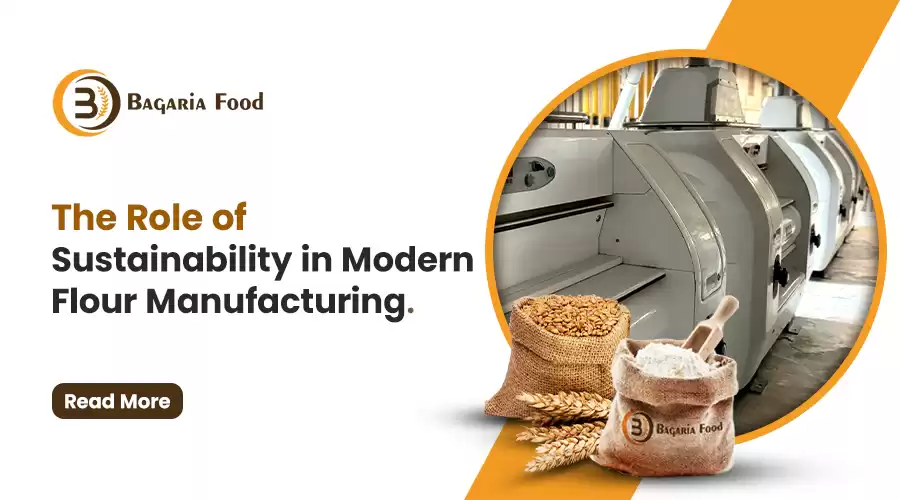The Need for Sustainability within the Food Sector
Sustainability is no longer a buzzword. Today, it is an imperative. Businesspersons within the food industry are fully aware that the prerequisite for a food business to be sustainable is not only a question of survival in the long term, but also one of social conscience. Sustainability takes on very significant dimensions within flour manufacturing, for this is one industry with huge environmental and social footprints.
Background of Flour Manufacturing Processes and Historical Trends
Flour manufacturing dates back thousands of years, and it started manually, with methods that involved either water or windmills. Modern processes make use of highly advanced machinery that has enhanced efficiency but resulted in an increased environmental impact, especially on energy use and resource depletion. Traditionally, fossil fuels and large amounts of water drive flour manufacturing; these drives are highly pollutant and dangerous to the climate. Therefore, there is a need to change to more sustainable methods to minimize harm to the environment.
Economic and Social Benefits of Sustainable Flour Manufacturing
Sustainable production of flour comes along with several economic as well as social benefits. Green, environment-friendly production techniques will minimize the cost of production in the long run by saving energy and resources. Companies that focus on sustainability have an added advantage because most investors and consumers are attracted to such companies.
Socially, sustainable flour manufacturing promotes improved working conditions and community welfare. A good example is sourcing wheat from local farmers who farm sustainably, thereby building economic resilience in the locality while reducing truck miles. Such goodwill auctions, in so doing, would boost the base of community ties leading to a more resilient and inclusive food system.
Practical Ways Flour Manufacturers Can Go Green
This sounds impossible if not daunting to change thousands of businesses engaged in flour production into sustainable ones. Practical steps will lead to this, though. Follow these actionable measures:
1. Energy Efficiency:
Upgrade to energy-efficient machinery or replace older, less efficient machines with new ones. Even this can be further reduced by using renewable sources of energy, such as either solar or wind power. More installations are cheaper over time, coupled with high-efficiency equipment doing their part toward cost savings and the environment.
2. Water Conservation:
Technologies that use less water as well as systems for recycling will help save water. Drip irrigation, designed for wheat fields as well as closed-loop water systems in milling processes, has become quite helpful.
3. Waste Management:
One of the circular economy principles is the minimal generation of waste. Co-products such as bran and germ can be either used for animal feed or making other useful products. Waste goes to landfills and more money is generated.
4. Responsible Sourcing:
Supply of green wheat can be therefore assured by partnering with sustainable farmers. Hence by incentivizing and motivating them by the use of fair trade and financial incentives, more farmers will seek to apply sustainable techniques.
Frequently Asked Questions
Q1. What are the significant environmental impacts of the production of flour?
Major impacts include chomping large energy, congenital water consumption, and waste. Sustainable practice aids in developing a reduction in these issues.
Q2. How can small-scale flour manufacturers apply sustainable practices?
Small-scale producers can start by working to reduce their energy use and conserve water as well as source their wheat from the local sustainable farms. With time, advanced technologies can be added when resources permit.
Q3. Are there certifications for producing sustainable flours?
Yes, the ways by which a mill deploys towards being more sustainable are certified from organic, and fair trade to LEED or Leadership in Energy and Environmental Design.
Conclusion
Sustainability is everybody's business. Each player that participates in the food business from the manufacturer down to the last consumer plays a very critical role in making the industry sustainable. Flour manufacturing leads this venerable movement as it encompasses the most environmentally and socially impactful activities.
Well, in any case, flour manufacturing renders the business environment-friendly, economically viable, and socially responsible through sustainable techniques. Indeed, a collective effort so desirable is a necessity for a sustainable future.


